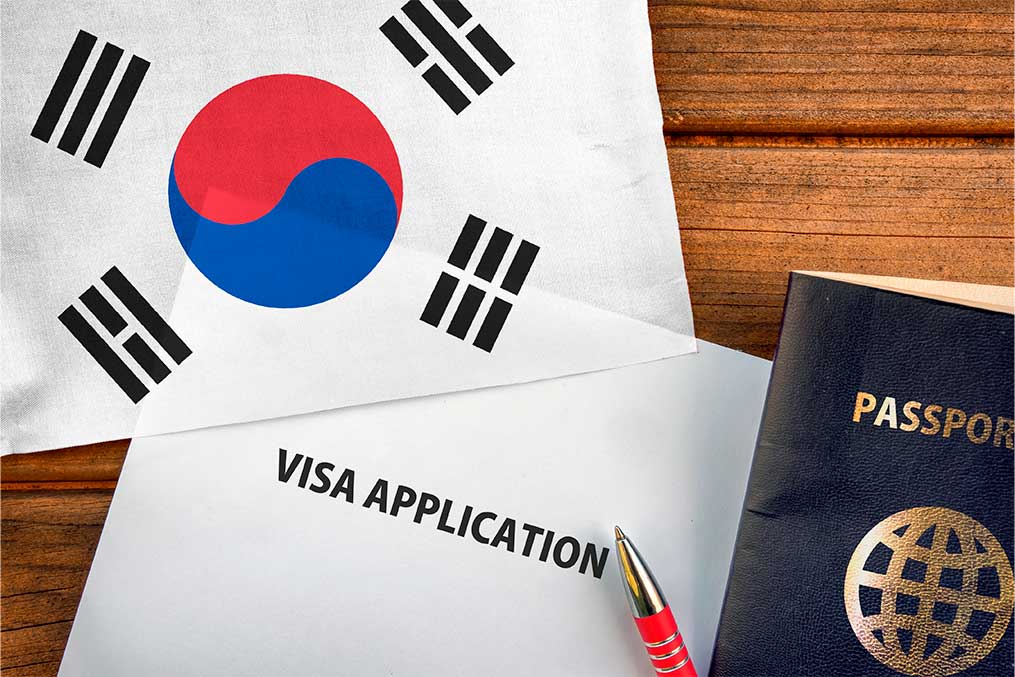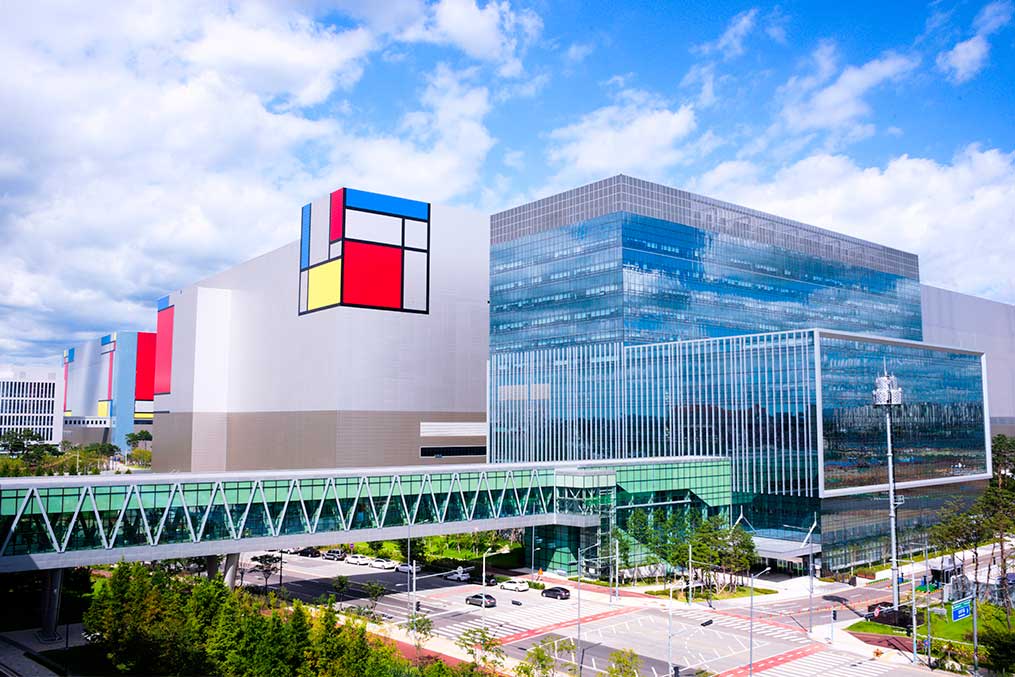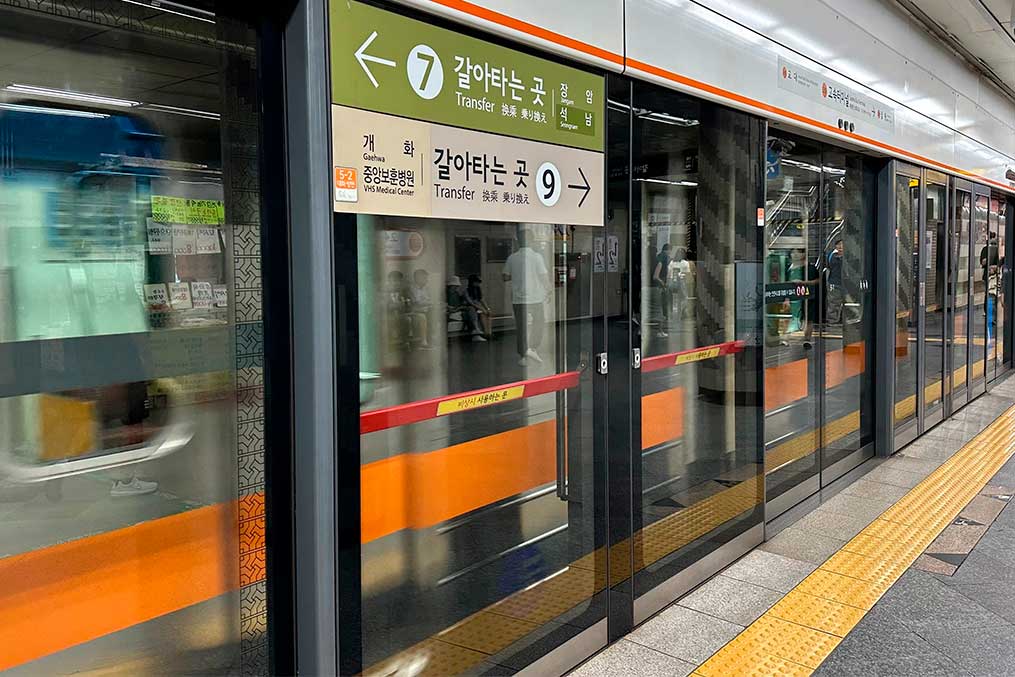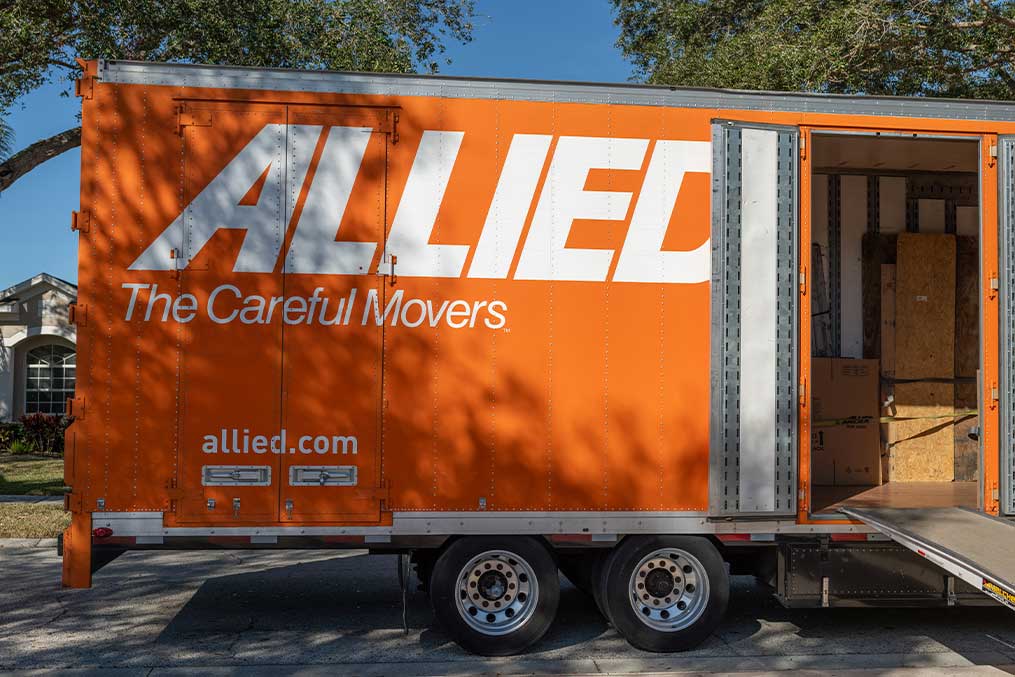Moving from California to South Korea: Full Relocation Guide
Sep 19, 2025

Moving from California to South Korea is more than just a long-haul flight. It’s a complete shift in culture, lifestyle, and daily rhythm. Californians who moving often find themselves juggling excitement, culture shock, and the thrill of discovery all at once. Whether you’re drawn by career opportunities, study programs, or just the lure of K-pop and kimchi, here’s your ultimate guide to moving from California to South Korea.
Why South Korea Appeals to Californians
South Korea is more than K-pop, K-dramas, and beauty products. It’s a place where futuristic skylines coexist with centuries-old palaces, and where fast Wi-Fi feels as essential as rice at dinner.
Here’s why Californians, in particular, feel drawn:
- Tech and business hub: Like Silicon Valley, Korea has its own innovation ecosystem. Samsung, LG, Hyundai, and Naver dominate, while startups thrive in fintech, gaming, and AI. If you’re from the Bay Area, you’ll feel right at home in Korea’s fast-paced tech world.
- Cultural magnet: Los Angeles is famous for diversity, but in Korea, you’ll be immersed in a single culture with deep traditions. This can feel overwhelming at first, but it’s also refreshing to experience a society with such a shared identity.
- Affordable travel: California has weekend trips to Vegas, Yosemite, or Mexico. In Korea, you’re a cheap flight away from Japan, Vietnam, Taiwan, or the Philippines. Many expats spend long weekends abroad.
- Education and opportunity: Teaching English is the most popular entryway, but Californians with backgrounds in film, design, or IT also find work here. South Korea values international expertise.
Relocating From California to South Korea: Quick Guide
| Aspect | California (CA) | South Korea (KR) |
| Housing | High rents, monthly lease system | Jeonse deposit system or monthly rent |
| Healthcare | Expensive, insurance-dependent | Affordable, universal healthcare |
| Transportation | Car-dependent, traffic-heavy | Excellent subways, buses, affordable taxis |
| Weather | Mild, Mediterranean-like | Hot, humid summers; cold, snowy winters |
| Food | Diverse cuisines, higher eating-out costs | Affordable dining, strong local food culture |
| Social Life | Casual, flexible schedules | Group culture, hierarchy, after-work dinners |
| Language | English-dominant | Korean-dominant, English limited outside big cities |
| Work Culture | More relaxed, work-life balance valued | Hierarchical, longer working hours common |
| Travel Options | Domestic road trips, Mexico nearby | Quick flights to Japan, Vietnam, SE Asia |
| Convenience | Stores close early in suburbs | 24/7 delivery culture, convenience stores |
Preparing for the Move

Navigating Visas and Paperwork
Your relocation begins with the right visa. South Korea offers a variety, each suited to different lifestyles:
- E-2 Visa (English Teacher): The most common option for Americans, requiring a bachelor’s degree and a clean background check.
- E-7 Visa (Special Occupations): For professionals in tech, design, and research.
- D-2 Visa (Student): For Californians studying abroad or pursuing graduate degrees.
- F-Series Visas: For those with Korean heritage, marriage to a Korean citizen, or long-term residence plans.
Tip: Get documents notarized and apostilled before leaving California. Once you’re in Korea, sending paperwork back and forth is a headache.
Shipping and Logistics
Packing up your California life takes strategy. Korean apartments are typically smaller, so think carefully about what to bring. Many expats ship sentimental belongings, clothing, and laptops, while selling or storing bulky furniture and U.S. appliances. Electronics often don’t travel well as South Korea uses 220V outlets, so your favorite blender may not work without a heavy converter.
Most expats ship a few boxes by air (for essentials) and send bulkier items by sea. If you’re moving with a family, a professional relocation company can handle customs and shipping.
Understanding the Cost of Living
Life in Korea is a mix of cheaper essentials and surprising expenses:
- Housing: In Seoul’s trendier districts, rents rival San Francisco. The unique jeonse system requires massive deposits instead of monthly rent, sometimes running into six figures. Outside Seoul, housing costs drop significantly.
- Transportation: Public transit costs a fraction of California car ownership. No insurance, gas, or parking drama.
- Healthcare: World-class and much cheaper than U.S. systems. A doctor’s visit can be under $10 with insurance.
- Food: Korean dining is affordable and plentiful, but imported groceries like cheese, wine, or avocados cost a premium.
Embracing Korean Culture
Language and Communication
English is common in tourist areas, but everyday life is overwhelmingly Korean. Even learning basics like greetings, numbers, and how to order food will smooth your transition.
A friendly “Annyeonghaseyo” (hello) or “Kamsahamnida” (thank you) can open doors and smiles. Apps like Papago and KakaoTalk outperform Google Translate for Korean, making it a daily lifesaver.
Social Etiquette
California casual doesn’t always work in Korea. Small gestures carry big weight: bowing lightly when greeting, giving and receiving with both hands, and removing shoes before entering homes. In professional settings, hierarchy is central. While Californians might casually call their boss by their first name, Koreans emphasize titles and hierarchy at work. While it may feel formal compared to California, observing these customs helps you build trust and respect.
Everyday Living in South Korea
Housing Options
Finding housing will likely be your first big adjustment. Options include:
- Officetels: Studio apartments, often furnished and perfect for singles or couples.
- Villas: Small apartment buildings with fewer amenities but more space.
- High-Rise Apartments: Modern complexes with gyms, shops, and playgrounds. Great for families but pricier.
Most rental contracts require significant deposits, and landlords expect 1–2 year leases. Employers often assist expats in securing housing.
Healthcare You’ll Actually Enjoy
Healthcare in Korea is efficient, modern, and affordable. Californians accustomed to long waits and high bills are often surprised at how seamless the system feels. Walk-in clinics are common, prescriptions are inexpensive, and dental and cosmetic services are world-class. Many expats share stories of their first $5 doctor’s appointment with disbelief.
Getting Around Without a Car
Public transport will replace your California commute.
- Subways: Affordable, safe, and spotlessly clean. Even late at night, Seoul’s subway feels secure.
- Buses: Reach suburban and rural areas where trains don’t.
- Taxis: Inexpensive compared to California, though language barriers can arise.
- Driving: Rarely necessary unless you live in rural provinces. Traffic fines are strict, and parking is limited.
Working in South Korea

Adjusting to Workplace Culture
If you’re used to California’s relaxed office culture, Korea’s work environment may feel more formal. Hierarchies are important, overtime is common, and after-work dinners (known as hoesik) are seen as an extension of team bonding. Recent reforms are pushing toward better work-life balance, but expect differences from the start-up vibe of the Bay Area.
Teaching English
Teaching remains the most accessible entry point for Californians. Contracts often include free housing, flight reimbursement, and steady pay. But it’s not a paid vacation. Lesson prep, classroom management, and cultural sensitivity are part of the job. Those who approach it professionally find it rewarding and financially stable.
Other Career Paths
For professionals outside education, opportunities exist in IT, entertainment, design, and international business. Speaking Korean, or at least learning workplace basics, can significantly improve your job prospects and integration.
Education Options for Families
If you’re moving with kids, education is a major consideration:
- International Schools: Provide American or IB curricula but come with hefty tuition ($20K–$30K annually).
- Public Schools: Offer excellent quality, but instruction is in Korean. Younger children may adapt quickly, but older teens may struggle without language fluency.
- Hagwons (Private Academies): After-school tutoring centers are a staple of Korean education culture, and many expat families use them too.
Lifestyle and Social Scene

Food and Dining Culture
Food in Korea is as much about community as it is about flavor. Korean BBQ dinners, where meat is grilled at the table and shared with friends, are a staple experience. Street food, from spicy tteokbokki to sweet hotteok pancakes, keeps evenings lively, and even convenience stores offer full, affordable meals around the clock. Western groceries are available but pricey, so as a Californian, you may find your avocado toast habits costly.
Nightlife That Never Ends
Seoul rivals Los Angeles in nightlife, with an added twist: it rarely sleeps. Karaoke rooms (noraebang), late-night cafés, and rooftop bars buzz until dawn, making it easy to meet new people and experience the city’s energy at all hours.
Outdoor Adventures
For those who miss California’s outdoors, Korea delivers in unique ways. Hiking is a national pastime, with trails even within city limits. Jeju Island, often called Korea’s Hawaii, offers volcanic landscapes, beaches, and waterfalls. In winter, Gangwon-do’s ski resorts provide snowy escapes just a few hours from Seoul.
Building a Social Circle
Making friends abroad can be tough, but Korea offers plenty of avenues:
Join Expat Communities Online
Start with online platforms that help you connect even before you land.
- Facebook groups: Search for groups like Every Expat in Korea, Seoul Expats, or city-specific ones like Expats in Busan. These are goldmines for advice, events, and meetups.
- Meetup and Eventbrite: Great for finding gatherings around shared interests: yoga, hiking, coding, or book clubs.
- KakaoTalk open chats: Korea’s favorite messaging app also has group chats for foreigners in specific areas.
Try Language Exchanges
Many Koreans want to practice English, and language exchanges are a perfect cultural bridge.
- Cafés and groups: In Seoul, places like Language Cast or Café Talk host structured meetups.
- Apps: HelloTalk and Tandem connect you directly with locals for conversation swaps.
Join Hobby and Interest Clubs
Korea thrives on group activities, and finding a club that matches your interests is an easy way to feel connected. If you’re into fitness, you can join a local gym, soccer team, or one of the many hiking groups that take to the mountains every weekend. Creative types might enjoy photography walks, K-pop dance classes, or even cooking workshops where food becomes a social experience. And if gaming is your thing, Korea’s PC cafés and board game cafés offer a lively way to meet both locals and fellow expats.
Volunteer or Join Community Events
Volunteering is a great way to meet like-minded people while giving back. Animal shelters such as KARA or smaller local groups often welcome weekend help, making it easy to connect with fellow animal lovers. You can also join charity runs or take part in cultural festivals, both of which draw a mix of locals and expats and give you a chance to experience Korea’s community spirit firsthand.
Adjusting as a Californian
Weather Extremes
Say goodbye to California’s mild climate. Korea has humid, sticky summers and freezing winters. Pack both tank tops and down jackets.
Smaller Spaces and Crowds
Apartments, cars, and even personal space are smaller. Subways and shopping districts can feel overwhelmingly crowded at first.
Next-Level Convenience
Delivery culture is legendary — everything from hot fried chicken to toiletries can arrive at your doorstep in minutes, often 24/7. Californians quickly grow addicted to the convenience.
Fashion and Appearance
Californians love casual wear, but in Korea, people dress more formally, even for everyday errands. Athleisure is trendy, but don’t be surprised if your flip-flops stand out.
Hiring a Moving Company for Your Relocation

Moving across the Pacific isn’t the same as hopping apartments within California—you’ll need professional help to get your belongings to South Korea safely. Choosing the right international moving company can make the difference between a smooth transition and weeks of stress.
Why Hire a Professional Mover?
- Customs and paperwork: International shipments require customs declarations, packing lists, and sometimes duty payments. Movers handle this on your behalf.
- Safe handling: From fragile wine collections to family heirlooms, movers use specialized packing to prevent damage in transit.
- Door-to-door service: The best companies handle everything—packing in California, shipping, customs clearance, and delivery to your new Korean home.
- Peace of mind: Tracking, insurance, and dedicated coordinators help you feel secure during a big move.
How to Choose the Right Company
- Experience with Korea: Not every mover specializes in Asia. Look for San Diego international movers that specifically handle U.S.–Korea relocations.
- Licenses and certifications: Check for FIDI, IAM, or other international moving accreditations.
- Transparent quotes: Get at least 2–3 moving quotes, and make sure they include packing, shipping, port charges, and delivery.
- Insurance options: Ask what’s covered under basic liability and consider full-value protection for valuable items.
- Reviews and referrals: Browse testimonials or ask fellow expats for recommendations.
Services to Look For
- Packing and unpacking: Professional wrapping of furniture, electronics, and fragile items.
- Storage solutions: Temporary storage if your housing in Korea isn’t ready yet.
- Pet relocation: If you’re bringing furry family members, make sure the mover has experience with pet transport regulations.
Timeline to Book
- 3–6 Months before moving: Start researching movers.
- 2–3 Months before: Request quotes, compare services, and book your preferred mover.
- 1 Month before: Finalize insurance, confirm inventory, and schedule packing day.
Tips for a Smooth Transition
- Apply for your Alien Registration Card (ARC) immediately upon arrival. It’s your key to banking, healthcare, and contracts.
- Open a Korean bank account. Shinhan and KEB Hana Bank are expat-friendly.
- Download essential apps: KakaoTalk (messaging, everyone uses it), Naver Maps (Google Maps often struggles in Korea), Coupang (Amazon-style delivery)
- Carry some cash, but be ready to use cards. Korea is largely cashless.
- Embrace differences rather than comparing everything to California. It will make your adjustment smoother.
Resources for Your Relocation
Relocating abroad can feel overwhelming, but the right resources will guide you through. For official information, the Korean Immigration Service and the U.S. State Department websites outline visa requirements, apostille procedures, and travel advisories.
For daily life, apps will become indispensable. Coupang makes shopping seamless, Zigbang helps with housing searches, and Naver Maps is more accurate than Google Maps for navigation. To bridge the language gap, Papago Translate is a must-have.
Frequently Asked Questions (FAQs)
1. Do I need to speak Korean to live in South Korea?
Not necessarily. You can get by in Seoul with English, but knowing even basic Korean will make daily life easier and help you connect with locals.
2. How much money should I save before relocating?
Aim for at least three to six months of living expenses. Housing deposits can be substantial, so having a financial cushion is wise.
3. Can I bring my pets to South Korea?
Yes. Pets need to be microchipped, vaccinated against rabies, and cleared with health certificates. Some movers even offer pet relocation services.
4. What is healthcare like for foreigners?
Healthcare is affordable, efficient, and high quality. Once you register for your ARC, you’ll be eligible for Korea’s National Health Insurance system.
5. Is it difficult to find housing as a foreigner?
It can be tricky without Korean language skills, but many real estate agents and employers assist expats. Large cities like Seoul are used to renting to foreigners.
6. What’s the biggest culture shock for Californians?
The weather extremes often catch people off guard, as do the social hierarchies at work. With an open mind, most expats adapt and even come to appreciate these differences.
Relocate From California to South Korea with Atlas Allied
Relocating from California to South Korea is exciting, but the logistics, like packing, shipping, customs, and settling in, can feel overwhelming. That’s where Atlas Allied comes in.
With years of experience in international relocations, they handle the heavy lifting so you can focus on starting your new life abroad. From safe transport of your belongings to personalized settling-in support, Atlas Allied makes your move seamless and stress-free.